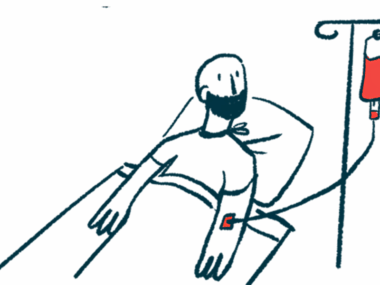Experimental Treatment NMD670 Wins FDA Orphan Drug Designation
NMD Pharma has completed a clinical trial testing treatment's safety, tolerability
Written by |

The U.S. Food and Drug Administration has granted orphan drug status to NMD670, an experimental oral therapy that NMD Pharma is developing as a potential treatment for myasthenia gravis (MG).
The designation is given to therapies intended for treating rare diseases, defined as those affecting fewer than 200,000 people in the U.S. It confers certain benefits, including tax credits, fee waivers, and most notably, a guarantee of seven years of market exclusivity if the FDA ultimately approves it.
“Myasthenia gravis is a rare neuromuscular disease with a high unmet medical need for innovative new treatments to address the debilitating symptoms of muscle weakness and fatigue. Receiving orphan drug designation for our lead product candidate, NMD670, is a significant milestone for NMD Pharma as it further strengthens our belief in this novel treatment approach and helps to progress our investigational drug to patients,” Thomas Holm Pedersen, CEO of NMD Pharma, said in a press release.
MG is caused by an antibody-driven immune attack that interferes with the communication between nerve and muscle cells, blocking signals from nerves that instruct muscles when to contract, leading to muscle weakness and other symptoms.
NMD670 is an orally available small molecule designed to block the activity of a protein called skeletal muscle specific chloride ion channel, or ClC-1. This protein is present only on skeletal muscles, those that attach to the skeleton and are responsible for voluntary movement. Skeletal muscles are those mainly affected in MG.
The ClC-1 protein regulates the movement of electrically charged chloride ions into muscle cells. This process plays a major role in governing the biochemical processes of muscle contraction. Activating ClC-1 normally prompts muscles to relax. By blocking this protein, NMD670 aims to shift the balance of these signals in order to prompt muscles to contract, improving muscle strength.
NMD Pharma is conducting a Phase 1/2a clinical trial (CHDR1948) to examine the experimental therapy’s safety, tolerability, and pharmacological properties. The study involved 79 participants, including healthy volunteers and patients with generalized MG. Patient dosing started in mid-2021, with healthy volunteers starting treatment the prior year.
The clinical trial was recently completed and results are “anticipated imminently,” according to the company.







Leave a comment
Fill in the required fields to post. Your email address will not be published.